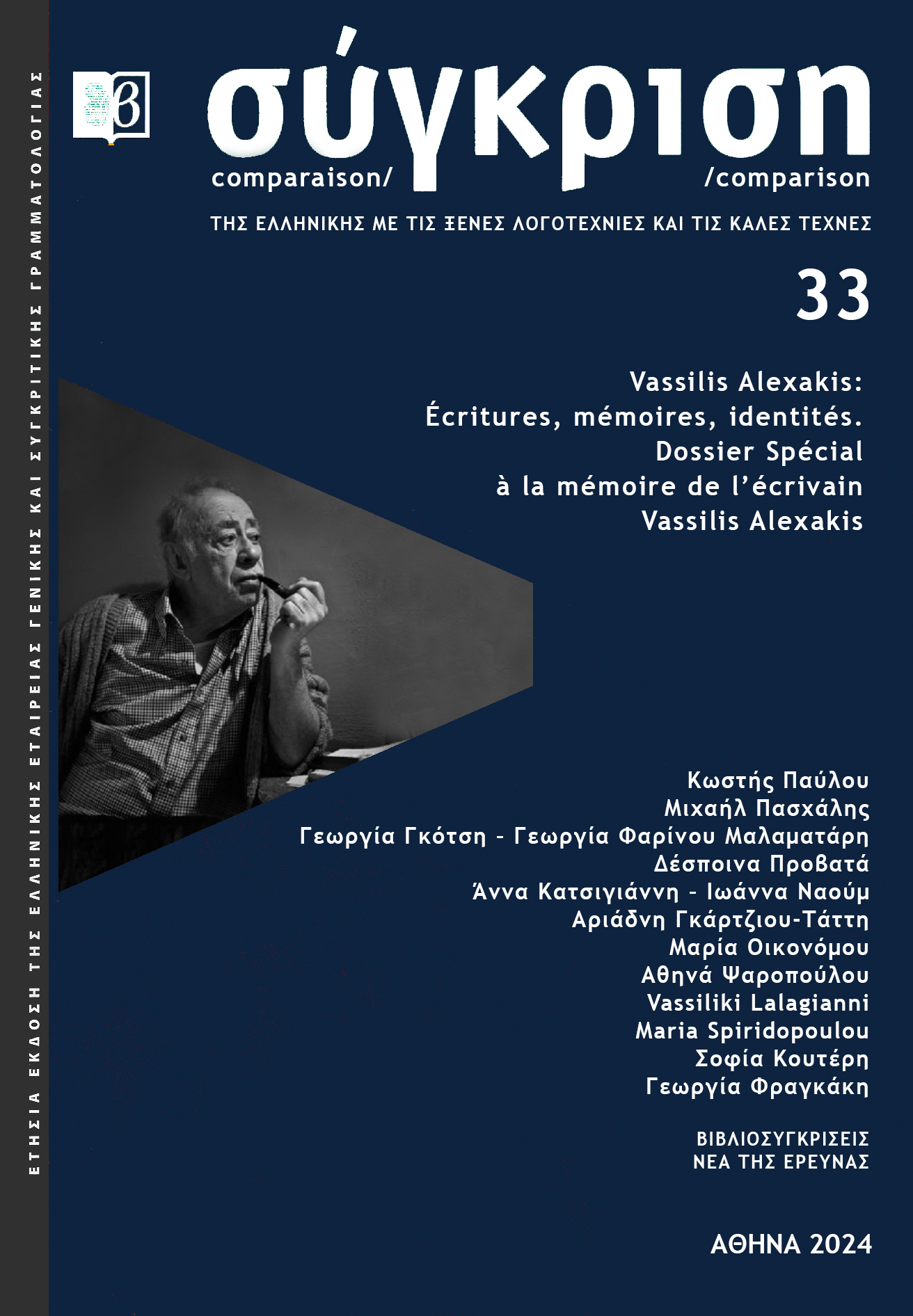Vassilis Alexakis : les « translingues », quels paradigmes?
Abstract
La littérature francophone des auteur-e-s « translingues », particulièrement celle de Vassilis Alexakis dans son roman Le premier mot (2010), nous permet non seulement d’explorer les recoins cachés du français, langue acquise et apprivoisée, mais aussi de creuser le mystère même de toutes les langues, s’aventurant jusqu’aux origines de la parole humaine. La quête que mène principalement le personnage central Miltiadis, dans sa vie « entre les langues » et en tant que linguiste réputé, fait qu’il incarne un Hermès réactualisé, le rôle qui incombera, après son décès, à sa propre sœur devenue une Hermesse au féminin. En tant que « guide », cette personne sans nom est caractérisée par des dons particuliers, étant capable de communiquer avec les morts et de faire se rencontrer les univers variés dans lesquels elle navigue. La présente réflexion sur l’écriture d’Alexakis procède donc dans une perspective mythocritique, face à la nouvelle donne dans la paradigmatique non seulement des langues qui s’influencent mutuellement mais aussi des mythes qui de nos jours continuent à se réactualiser et à se réécrire.
Article Details
- How to Cite
-
Zupančič, M. (2025). Vassilis Alexakis : les « translingues », quels paradigmes?. Comparison, (33), 64–74. Retrieved from https://ejournals.epublishing.ekt.gr/index.php/sygkrisi/article/view/39103
- Issue
- No. 33 (2024)
- Section
- Articles

This work is licensed under a Creative Commons Attribution-NonCommercial-ShareAlike 4.0 International License.
Authors who publish with this journal agree to the following terms:
- Authors retain copyright and grant the journal right of first publication with the work simultaneously licensed under a Creative Commons Attribution Non-Commercial License that allows others to share the work with an acknowledgement of the work's authorship and initial publication in this journal.
- Authors are able to enter into separate, additional contractual arrangements for the non-exclusive distribution of the journal's published version of the work (e.g. post it to an institutional repository or publish it in a book), with an acknowledgement of its initial publication in this journal.
- Authors are permitted and encouraged to post their work online (preferably in institutional repositories or on their website) prior to and during the submission process, as it can lead to productive exchanges, as well as earlier and greater citation of published work (See The Effect of Open Access).



